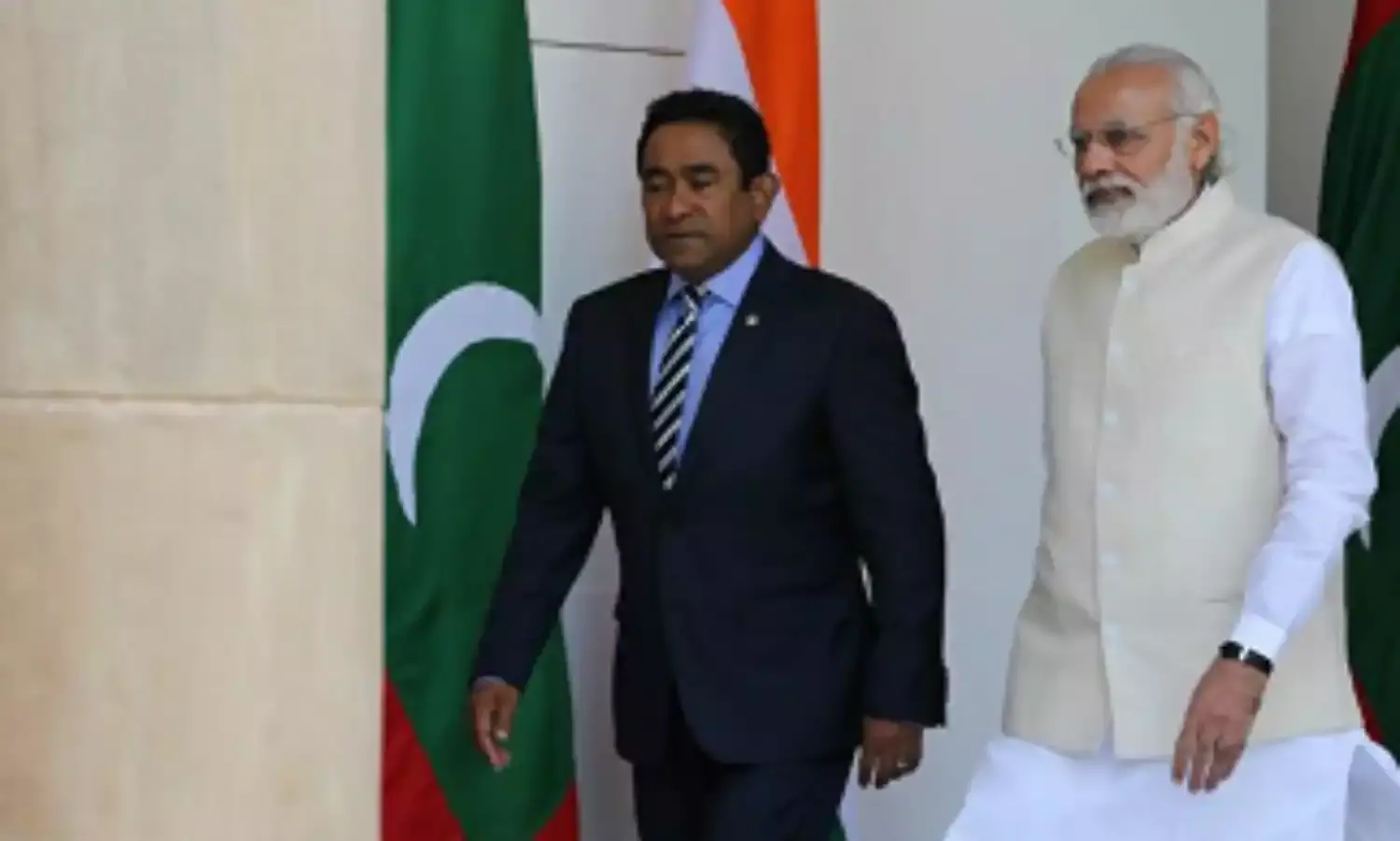India Takes Sides, Plunges Into Maldivian Fractious Politics
India favors Opposiiton

COLOMBO: By throwing its weight entirely behind the Maldivian opposition led by Mohamed Nasheed, India may have lost a golden opportunity to play mediator and peace maker between the warring parties in the strategically located Indian Ocean archipelago.
By being openly biased in favor of the opposition and against the Abdulla Yameen regime, India has plunged headlong into the quagmire of the Maldives’ fractious and partisan politics where loyalties are as steady as quicksilver.
Given the shallowness Maldivian political loyalties, endemic corruption and disrespect for institutions, India will find it hard to count on anyone, any leader or any political party whether in power or in opposition. India, will, in turn, be viewed with suspicion by all.
India could well have played the peace maker and mediator, restored stability and national consensus and won the approbation of all sides. But sadly, this was not to be.
Partisanship on the part of India might result in cancellation or non-execution of projects funded by it by a ruling party which it worked against earlier. There would be a tendency to look to countries other than India, which do not interfere or which are perceived as being non-interfering. But again, any such move would irk India and force it destabilize the government.
It would be better for India to stay neutral and deal only with the government of the day, irrespective of the party in power. This way India can protect itself from willful opposition and vindictive action on the part of local political parties and leaders.
India was in the best position to intervene constructively in the Maldives as it has historic, cultural, and geographic ties with this country, which are unmatched by any other country, be it China or any Western power.
All Maldivians, including President Abdulla Yameen and the opposition leader Mohamend Nasheed, had explicitly accepted India’s position as the Big Brother who means well. India’s advice tendered in a friendly way would have been accepted by all sides.
But India failed to seize the opportunity to fill that unique space. Stung by the GMR airport project episode, India ceased to interact with the government of the Maldives. Maldives is the only country in South Asia which the Indian Prime Minister Narendra Modi has not visited yet.
When the government of the Maldives wanted to send a Special Envoy to explain its stand on the current crisis, India refused to meet him. New Delhi could itself have sent a Special Envoy to settle the matter, or even if only to protect its turf in the Maldives. But even that was not done.
When the Emergency was lifted, India could have appreciated it and created an opening for its mediation to bring Nasheed and Yameen together and get the broken institutions of the State functioning again. But New Delhi issued a particularly hard communiqué virtually reading the riot act to Yameen and giving a deadline to meet India’s demands.
However well-meaning such dictation may be, it invariably invites revulsion .The retort tends to be equally hard, leaving no room for maneuver for both sides.
Thus, India and the Yameen regime may have reached a point of no return. The Indian stand may allow Yameen to play the Maldivian nationalist card in the September 2018 Presidential election to garner votes. Nationalism and Islam could turn out to be powerful propaganda tools in an election campaign in a country which is small and struggling to keep its independence in the competitive world in which every country wants a hold on it given its strategic location.
The Indian statement of March 22 called upon the government of Maldives “to restore all Articles of the Constitution; allow the Supreme Court and all other branches of the judiciary to operate in full independence; promote and support the free and proper functioning of parliament; implement the Supreme Court’s Full Bench order of February 1 ,2018; and support a genuine political dialogue with all opportunities.”
“It is important for the government of the Maldives to ensure credible restoration of the political process as the well as the Rule of Law, before the elections are announced this year.”
There was more than a hint of coercion when the Indian statement said that India’s security is tied to peace and stability in the Maldives.
This resulted in the Maldivian government asking India to back off from interfering in what is a domestic affair.
“The Government of Maldives firmly believes that the recent political developments are an internal political matter and therefore should remain as a matter to be resolved internally,” a Foreign Ministry statement forthrightly said on Friday.
It went on to say: “Furthermore, the Government of Maldives wishes to reiterate that public statements made without genuine regard to facts and ground realities of the situation in the Maldives are not helpful at all to ensure a stable, peaceful and prosperous Maldives that meets the aspirations of its citizens.”



